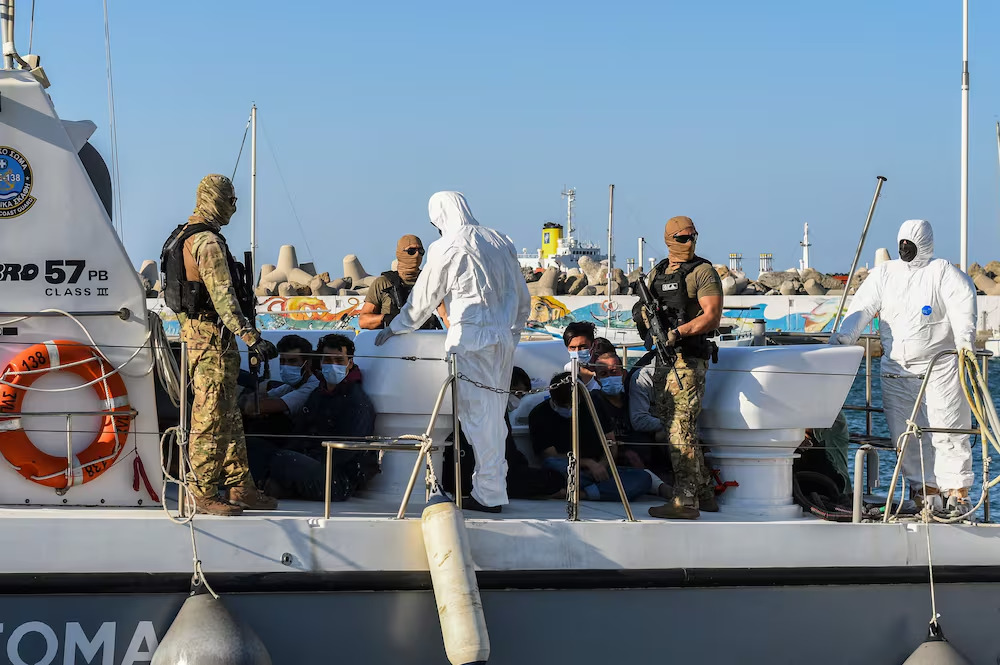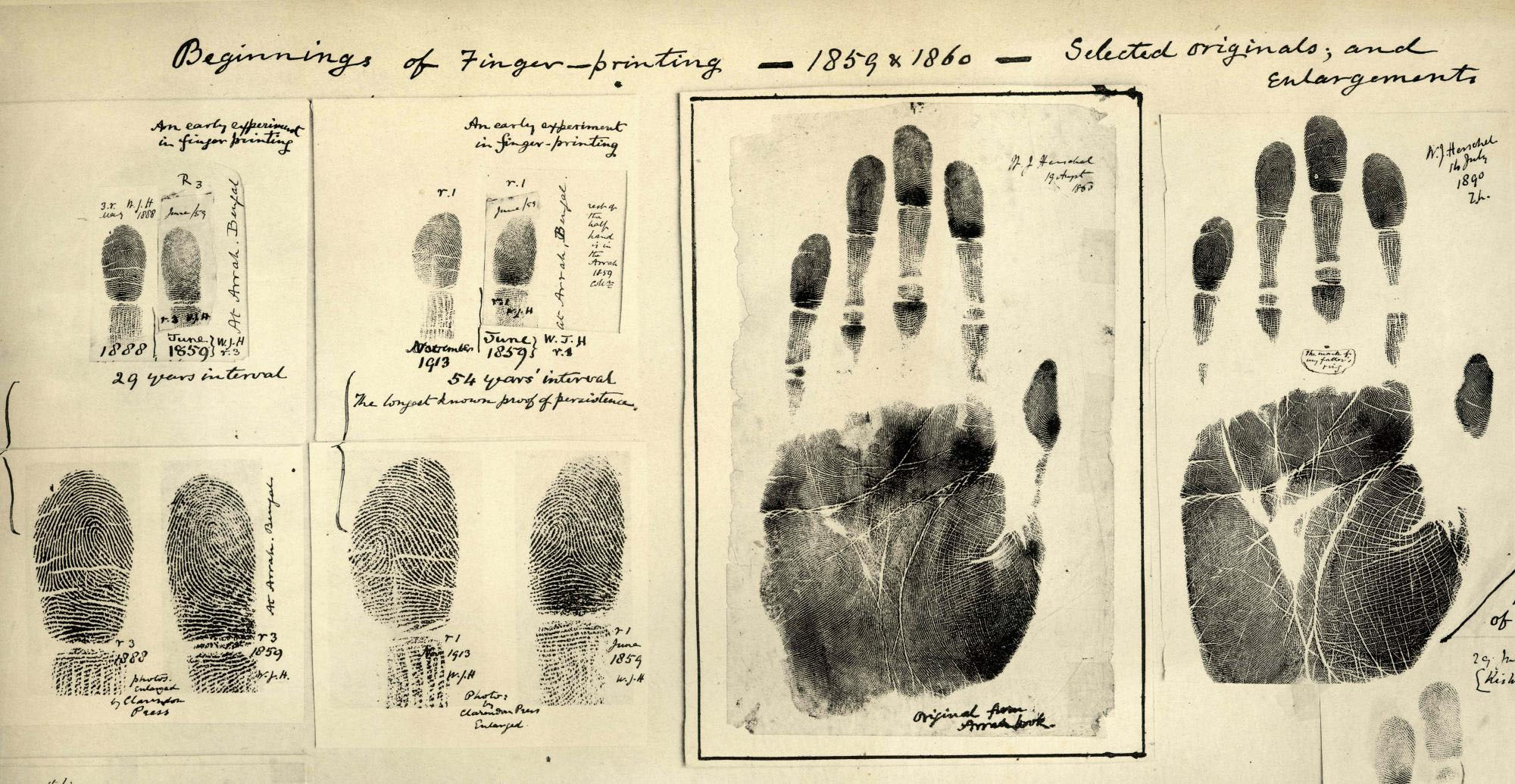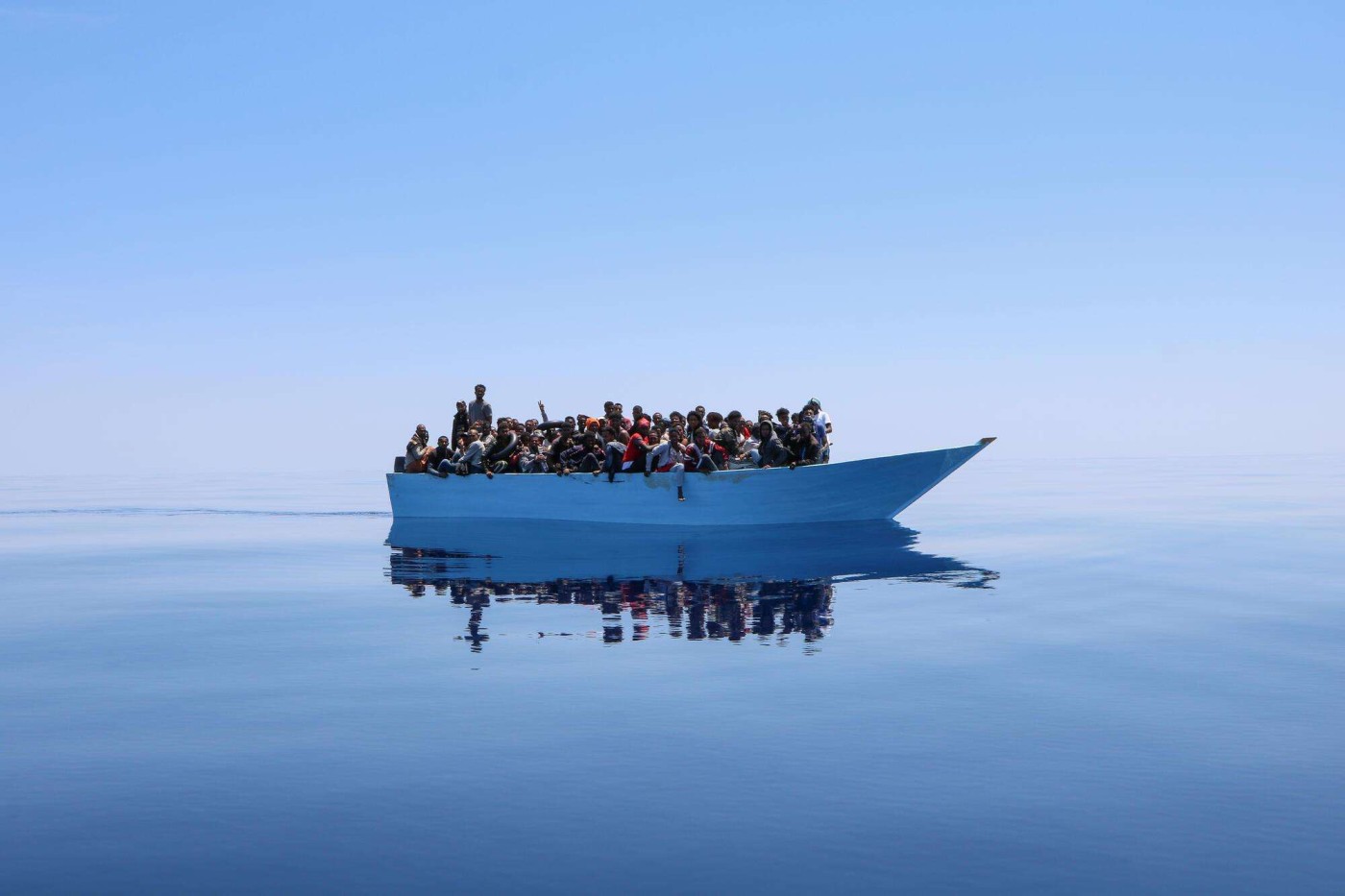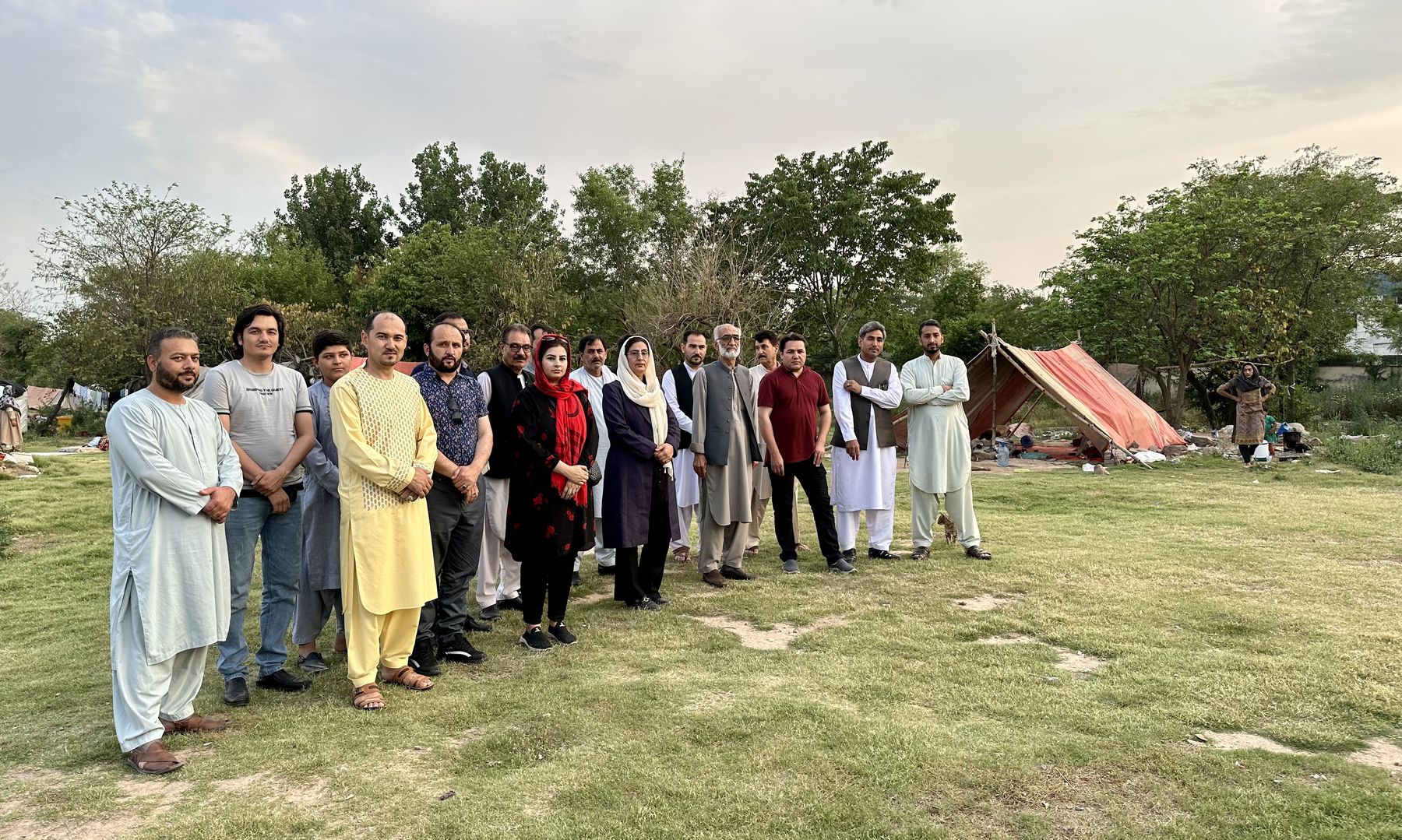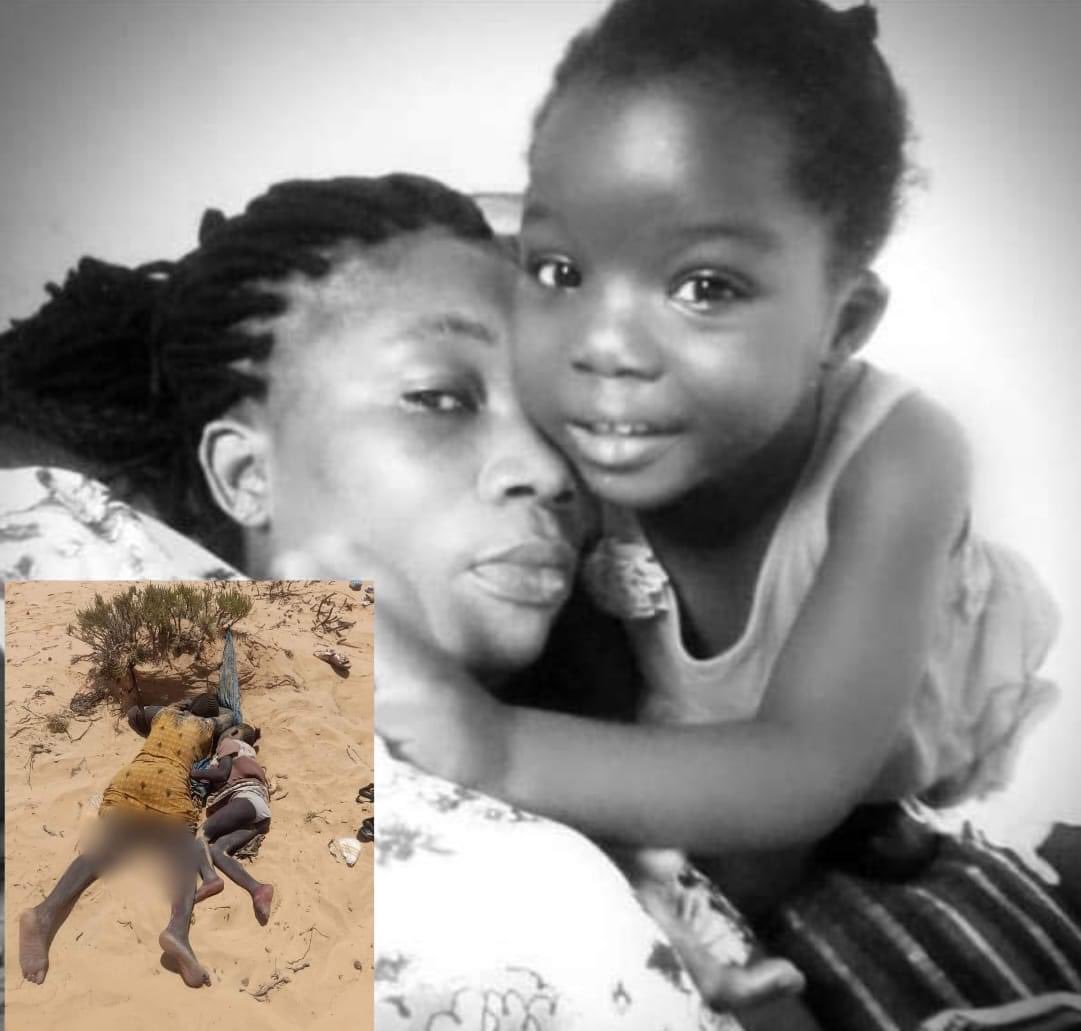Center yes, but with some conditions
- The Ongi Etorri Refugee Association of Álava moves away from the current controversy – the State Host Model vs the Basque Host Model – and calls for five necessary measures to open a comprehensive and dignified reception centre for refugees in Vitoria-Gasteiz, to respond to other social needs of the city and create an intercultural coexistence in the neighborhoods.

It has been more than seven years since we in Vitoria went out in 2015 to claim that we are a protective city. That photograph of the Syrian child Aylan Kurdi touched us.
During these years, images of refugees fleeing Syria, Afghanistan, Ukraine and other countries have continued to stir us.
Insufficient response
However, it is not enough to get excited. The institutional response of our city to the reception needs of these refugees has been rather poor over these years (especially if we disregard the atypical reception of Ukrainians). Because:
Vitoria does not respond to the increase in refugees in the city (14 people requested asylum in Vitoria in 2015, 1,044 in 2022). Since 2015, there has been no increase in emergency residential resources. On the contrary, those who have arrived at the doors of the SSM (Municipal Emergency Social Service) requesting accommodation have been offered €8 for a bus card from another city.
Nor do we understand what the City of Vitoria-Gasteiz means when referring to its municipal model of reception. Is there a model of municipal reception? How many housing units has the City of Vitoria-Gasteiz installed for asylum seekers during these years? Which small centres have been set up and how many places do they have? We are asking for concrete figures to account for the municipal protection policy during these years.
"Vitoria does not respond to the increase in refugees who arrived in the city (fourteen people requested asylum in Vitoria in 2015, 1,044 in 2022)"
More places, comprehensive and dignified reception model
In this context of inactivity and without sufficient places, Ongi Etorri Refugees Araba wishes to recall once again the need to adapt the reception places to people arriving in the city and seeking international support (refugees, denied asylum, stateless persons, in transit).
These places must be part of an integral and dignified reception model (a demand that we move away from the empty debate between the Basque and State models that we are seeing lately):
Provide refugees with a safe place to live (sometimes centres, sometimes housing), the support of professionals from different areas (psychological, legal, linguistic, work) and the possibility of having a new life in a neighbourhood, town or city.
Articulate procedures, rules and laws that enable refugees to develop their dignified life in place, with autonomy and respect for their rights (health, education, profession, administrative regularity).
To propose community social intervention taking into account the needs of the neighborhood population that integrates, avoiding confrontation between residents and newcomers.
"In the case of families with minors, what school will they go to? Which route of registration will be activated? How will administrative procedures relating to asylum applications be managed?"
Center yes, but with some conditions
Within this model of integral reception, Álava Ongi Etorri, Refugee, would consider it appropriate to open a centre of refugees in Vitoria-Gasteiz, provided that it is accompanied by the following measures:
- Not only open the centre, but as part of a set of residential resources (hostels, small centres, apartments) adapted to refugees in the city, depending on their profiles and needs (remember that some applicants may need 24-hour professional monitoring and that other people to live on a floor are the best option).
- Locate public property currently unoccupied or underutilized (Betoño, Ezkoriatza Palace, Ignacio Aldecoa College, Military Government) according to a general reuse plan to meet other social needs: elderly people with severe dependency, people in transit or street situation, young people…
- Approve its opening together with a Municipal and Multiannual Operational Plan for the orientation and management of educational, health and social resources of residents. In the case of families with minors, what school will they go to? Which route of registration will be activated? How will the administrative procedures relating to asylum applications be managed? What regulation will be promoted in the rented housing market to meet the housing needs of people when they leave the center?
- To present a community intervention program in the district (Arana or neighborhood where it is located) designed by the community and with multiannual funding. This program will take into account the needs of the residents of the neighborhood and avoid confrontation between migrants and the elderly. Both groups have specific needs which can be met if there is political will.
- Coordination with the dialogue tables involving neighbourhood associations, institutions, educational centres and health centres once the centre has been opened.
"We call on political parties not to confuse the debate in search of electoral benefits. Not using outdated clichés or intimidating language"
No alarming speeches, no policies to protect people's lives and well-being.
We call on the political parties not to confuse the debate in search of electoral benefits. Do not use outdated clichés or an intimidating language (a centre does not have to have a row of barracks with beds).
We ask the political representatives not to fear the citizens with alarming speeches. In Vitoria-Gasteiz there are large residential resources (for example, the University Residence of the Campus of Álava Tomás Alfaro Fournier has 220 places), but no controversy has arisen. Let us not talk about macro-centres.
We sincerely call on all social partners to talk about reception models: the Basque model of reception has centres such as Oñati (11,500 inhabitants), with capacity for 80-100 places, which has been integrated without conflict into the daily reality of the people.
We applaud the neighbourhoods of Arana, Judimendi, Saint Lucia and Aranbizkarra for the capacity to welcome them all these years, and we ask them not to leave them as racist or xenophobic neighbourhoods. It is an adult, elderly population (40% of the population over 65), and its mistrust towards a refugee centre has only to do with the lack of a centre for the elderly, which has been demanding for years. We ask for restraint and critical reflection, in addition to being firm towards those who want to convey fear in the neighborhoods.
We call on the political, trade union and social agents of Euskal Herria to open a framework of debate and policy design to respond comprehensively to the people who arrive in this territory in search of security and a life worth living. Only then can we say that Euskal Herria is truly a welcoming people that implements policies to protect the life and well-being of people, peoples and nature goods, focusing the care and life of all.
We call for compliance with the provisions of international law, especially the Geneva Convention on Refugees, and for the updating of cases entitling a person to be protected. Thus, to protect all people who are forced to leave their countries of origin by our current model estractivist, predator and eco-partner.
Europar Batasunean berriki onartu den Migrazio Itunak, asko zaildu dizkie gauzak euren herrialdetik ihesi doazen eta asiloa eskatzen duten pertsonei. Eskuin muturraren tesiak ogi tartean irentsita, migratzaileentzako kontrol neurri zorrotzagoak onartu dituzte Estrasburgon,... [+]
Migratzaileen kopurua anitz emendatu da Irun eta Hendaia arteko pasabidean. Irungo Harrera Sareak ohartarazi duenez, otsailean 600 pertsona lagundu dituzte, iaz, urte osoan 2.700 izan zirelarik. Iragan urtarrilean, 2.700 etorkin heldu dira Kanariar Uharteetara, egunero 80... [+]











